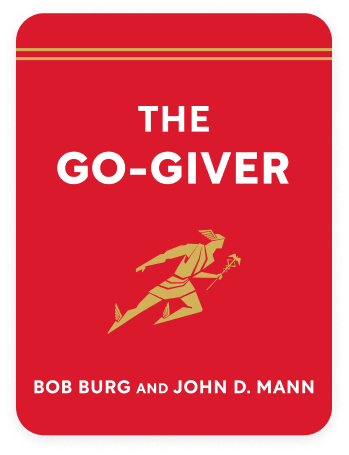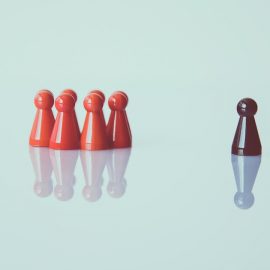

This article is an excerpt from the Shortform book guide to "The Go-Giver" by Bob Burg and John D. Mann. Shortform has the world's best summaries and analyses of books you should be reading.
Like this article? Sign up for a free trial here .
What is the Law of Influence? How can putting other people’s interests first benefit you in the long run? Why is a win-win situation actually a losing proposition?
The Law of Influence from The Go-Giver states that your influence (social capital) is determined by the extent to which you put other people’s interests first. It’s actually a form of enlightened self-interest: You meet others’ needs with the faith that in doing so, you’ll get what you need.
Continue on to learn about the Law of Influence and how Joe from The Go-Giver learned to apply it.
The Law of Influence
The Law of Influence: Your influence (social capital) is determined by the extent to which you put other people’s interests first.
Joe and Pindar visited Sam Rosen, a financier and owner of the Liberty Life Insurance and Financial Services Company, the most successful financial services company in the world. Sam explained that he’d started his career as a struggling insurance agent. But his fortunes changed for the better when he began focusing on giving rather than getting—he became his company’s top salesman. In his later years, he began working with nonprofits and became a philanthropist.
Sam told Joe that besides giving, a key to success is expanding your influence by building a network of people who know, like, and trust you—an “army of personal ambassadors,” who might not necessarily buy from you but who always have you in mind. With such an army, you’ll have a stream of referrals.
Stop Keeping Score
The way to create a network of personal ambassadors is to stop “keeping score.” In the business and political worlds, you typically keep track of favors—you do favors expecting that others will return the favors and you keep track of who “owes” you. In fact, transactions that people refer to as a win-win are really a way of keeping track—of making sure everyone comes out even and no one gets the edge.
But when you base your relationships on who owes what to whom, you’re being a creditor, not a friend. The third law of success is that your influence is determined by the extent to which you put other people’s interests first. This means rejecting a win-win and putting the other person’s win first—watching out for her interests. Striving for a fifty-fifty outcome is “a losing proposition,” Sam said. “The only winning proposition is 100%.”
Pindar added that the Law of Influence generates success because if you put the other person’s interests first, your interests will always be taken care of. It’s actually a form of enlightened self-interest: You meet others’ needs with the faith that in doing so, you’ll get what you need. Pindar explained it this way: Most people think money, success, and status give you influence. However, influence comes first—influence creates success. And putting others’ interests first creates influence. Therefore, putting others’ interests first creates success.
After they left Sam, Joe commented to Pindar that the three people he’d met—Ernesto, Nicole, and Sam—all had a common quality: personal magnetism. Pindar explained it was giving that made them attractive: givers attract. And Joe thought, the Law of Influence (putting other people’s interests first) works because it magnetizes you.
Applying The Law of Influence
When Joe arrived at home, he found that his wife Susan had had a difficult day. Both had high-stress jobs and needed to vent, but they didn’t let it get out of hand because they usually brought home additional work to be done before bedtime. They had a rule that neither would complain for longer than a half-hour.
Susan began to vent about her day and a half-hour quickly passed. Realizing she’d gone over the time limit, she stopped and apologized, saying, “A deal’s a deal.” It reminded Joe of what he’d heard earlier in the day: Fifty-fifty is a losing proposition.
Without thinking further, he said his work could wait and he wanted to hear about her day. Susan went on for a long time and he wasn’t sure it had helped. But when he woke up the next morning after she’d left for work, he found a heartfelt note from her thanking him for his selflessness in listening.
Joe realized that the Law of Influence and the other giving-related laws applied not only to work but also to life.

———End of Preview———
Like what you just read? Read the rest of the world's best book summary and analysis of Bob Burg and John D. Mann's "The Go-Giver" at Shortform .
Here's what you'll find in our full The Go-Giver summary :
- Why giving will take you further than getting
- The Five Laws of Stratospheric Success
- How giving isn't the same thing as always being nice






